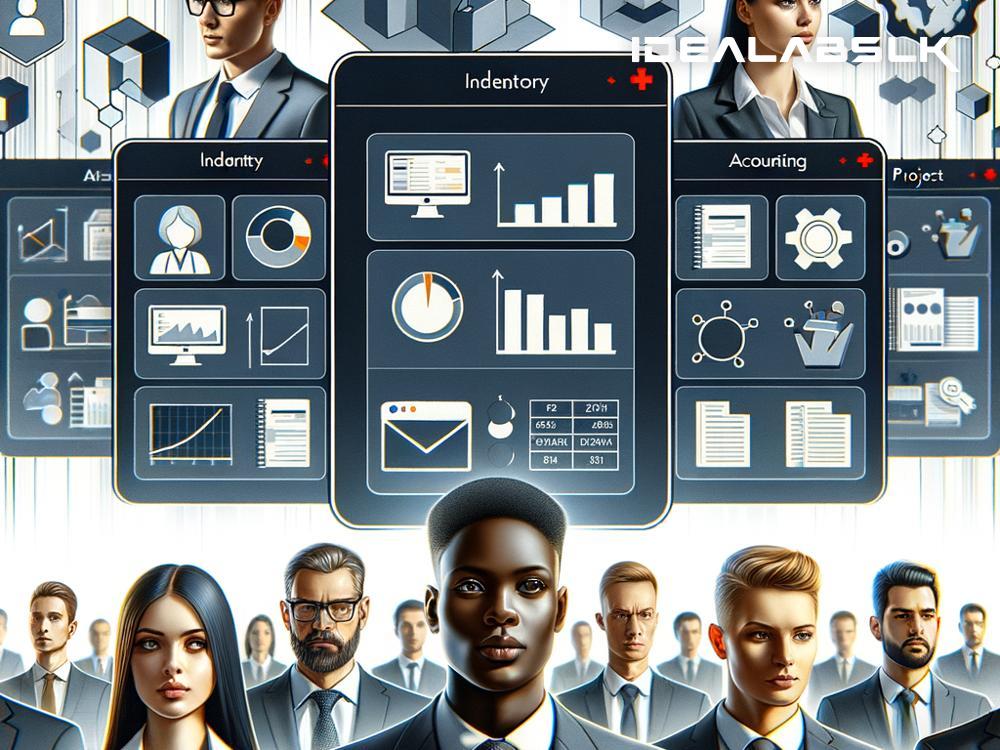Title: A Beginner's Guide to Enterprise Resource Planning (ERP) Software
In the business world, efficiency and cohesion are keys to success. That's where Enterprise Resource Planning (ERP) software swoops in like a superhero, streamlining operations and fostering growth for companies of all sizes. If you're scratching your head wondering what ERP is and how it can help, you're in luck. Let's dive into the world of ERP software, breaking it down into simple English, so you can understand its impact and why businesses today can hardly do without it.
What is ERP Software?
Imagine you're trying to bake a cake, but your ingredients are spread across ten different stores, each managed by different people with little communication among them. Sounds chaotic, right? Now, imagine all your ingredients are neatly organized in one big supermarket under the same roof, with each department perfectly synced with the others for a smooth shopping experience. That supermarket is what ERP does for businesses.
In technical terms, ERP software is a suite of integrated applications that manages and automates core business processes, such as finance, HR, manufacturing, supply chain, services, procurement, and others, all in one centralized system. It's like the brain of the business, ensuring everything from accounting to order management to human resources works together in harmony.
Why Use ERP Software?
Businesses are complex, with various departments needing to share information and collaborate. Before ERP, this was mostly done manually or through disjointed software, prone to errors and inefficiencies. With ERP:
- Data is unified: Information from every department is stored in a single database, enhancing accuracy and accessibility.
- Processes are streamlined: Automated workflows reduce manual tasks, speeding up operations and minimizing mistakes.
- Decision-making is informed: Real-time data analysis offers insights that help businesses make smarter decisions.
- Growth is scalable: ERP systems are designed to grow with your business, accommodating new processes and additional users easily.
How Does ERP Software Work?
ERP systems integrate various business processes, ensuring they share information seamlessly. At its core, an ERP system is comprised of modules, each focusing on a different business area. While each module can operate independently, they share a database at their heart, ensuring that every department is on the same page.
Here's a simplified breakdown of what happens:
- Data collection: Information from various business activities is entered into the ERP system.
- Data processing: The system processes this data, based on the configured workflows and rules.
- Data analysis: ERP software then analyses this data, providing insights and reports.
- Action and automation: Based on the processed data, the system can automate tasks, prompt actions, or alert users to anomalies.
Choosing the Right ERP Software
Selecting the right ERP system isn't a one-size-fits-all affair. Here are some key considerations:
- Business Needs: Assess what problems you're trying to solve and what processes need integrating.
- Scalability: Ensure the ERP can grow as your business does.
- Cost: Beyond the initial investment, consider the cost of implementation, training, and ongoing support.
- User-Friendliness: A system that's difficult to use can hinder, rather than help, your business.
- Vendor Reputation: Research and select a vendor with a solid reputation and a track record of support and reliability.
ERP Implementation: A Brief Overview
Implementing an ERP system is a major project that requires careful planning. It typically involves:
- Preparation: Defining project scope, objectives, and forming a dedicated project team.
- Design: Configuring the ERP system to align with your business processes.
- Development: Any necessary customizations are made to the software.
- Testing: Extensive testing to ensure everything works as intended.
- Deployment: Rolling out the system across the organization.
- Support and Maintenance: Continuous support and updates to ensure smooth operation.
Wrapping Up
ERP software represents a pivotal investment in the framework of any modern business, ensuring that all parts of the business communicate efficiently and make informed decisions. While the road to ERP implementation can be challenging, the payoff in increased efficiency, clearer visibility into operations, and enhanced decision-making capabilities can propel businesses into a new stratum of success. Whether you’re a small startup or a sprawling enterprise, exploring the potential of ERP software could be the key to unlocking the next level of growth and efficiency in your business journey.

